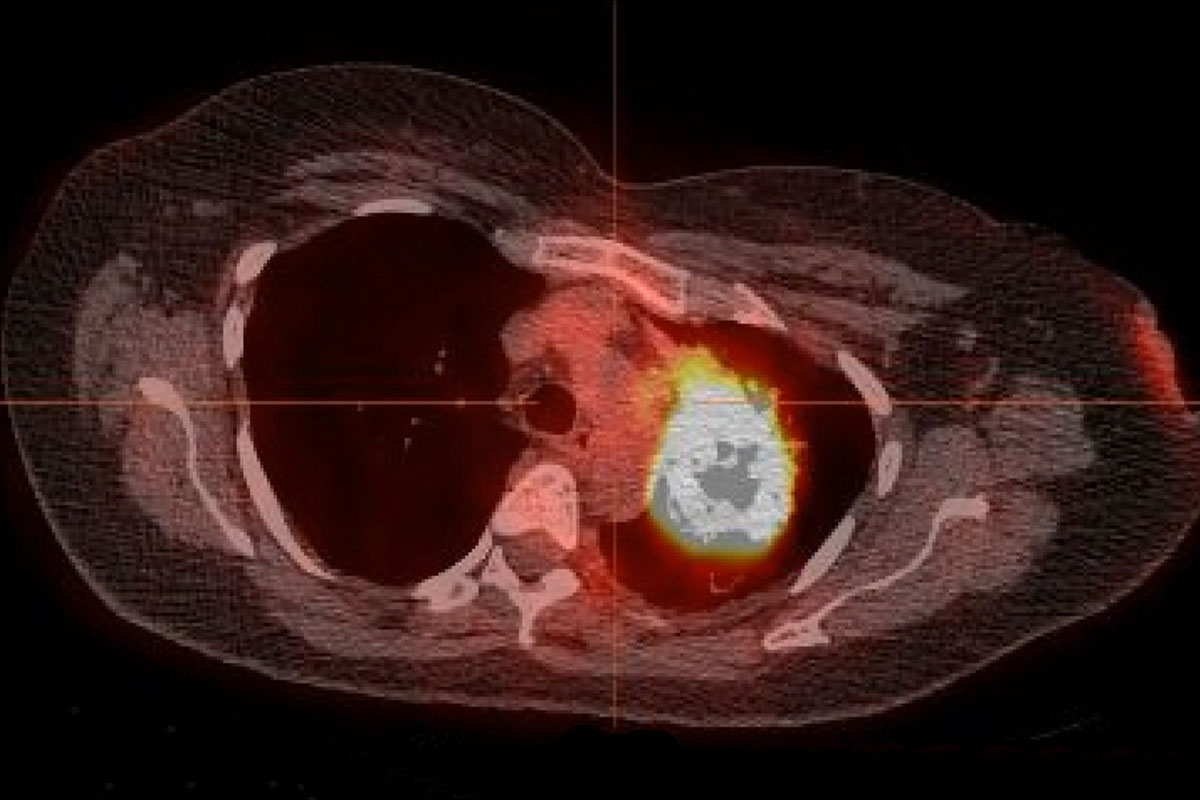 |
| An image of a lung tumor in a patient who never smoked Image credit Washington University |
CANCER DIGEST – Oct. 2, 2021 – Lung cancer in people who have never smoked has long been a mystery to researchers, and although they still are working to understand the origin of these cancer, researchers at Washington University in St. Louis have found that these tumors are treatable with existing therapies.
In a study that involved a genetic study of 157 never smoker lung cancer tumors and 76 never-smoker lung patients compared to 299 lung cancer patients who had a history of smoking, the researchers found that never smoker cancers are fueled by specific mistakes in DNA. In addition, they found that current targeted therapies already on the market can be effective in treating between 78% and 92% of these patients.
The study led by Ramaswamy Gofindan, MD, professor of medicine at the university, appears in the Sept. 30, 2021 Journal of Clinical Oncology.
"We found that the vast majority of these patients have genetic alterations that physicians can treat today with drugs already approved for use," Ramaswamy said in a press release. "The patient must have a high-quality biopsy to make sure there is enough genetic material to identify key mutations. But testing these patients is critical. There is a high chance such patients will have an actionable mutation that we can go after with specific therapies.”
An anomally of lung cancer in never smokers that has intrigued scientists is that the about 60 percent of these cancers are in women and 40 percent are in men. By contrast the majority of lung cancers in smokers are male.
In previous studies, the team had found that lung cancers in tobacco users had 10 times the number of genetic mutations as the tumors of never smokers. Careful analysis of the mutations in both the smokers and never smokers revealed a specific telltale signs of smoking or heavy exposure to secondhand smoke that were not present in never smokers.
Those findings allowed the research team to conduct a detailed genetic comparison of tumors from never smokers and smokers. What they found that tumors from never smokers did not contain immune cells, which explains why those tumors do not respond well to certain types of targeted immununotherapy, but they do respond to other types of therapies.
“The most important finding is that we identified actionable mutations in the vast majority of these patients — between 80% and 90%,” Govindan said. “Our study highlights the need to obtain high-quality tumor biopsies for clinical genomic testing in these patients, so we can identify the best targeted therapies for their individual tumors.”
Sources: Washington University press release by Julia Evangelou Strait, and the Journal of Clinical Oncology


No comments:
Post a Comment